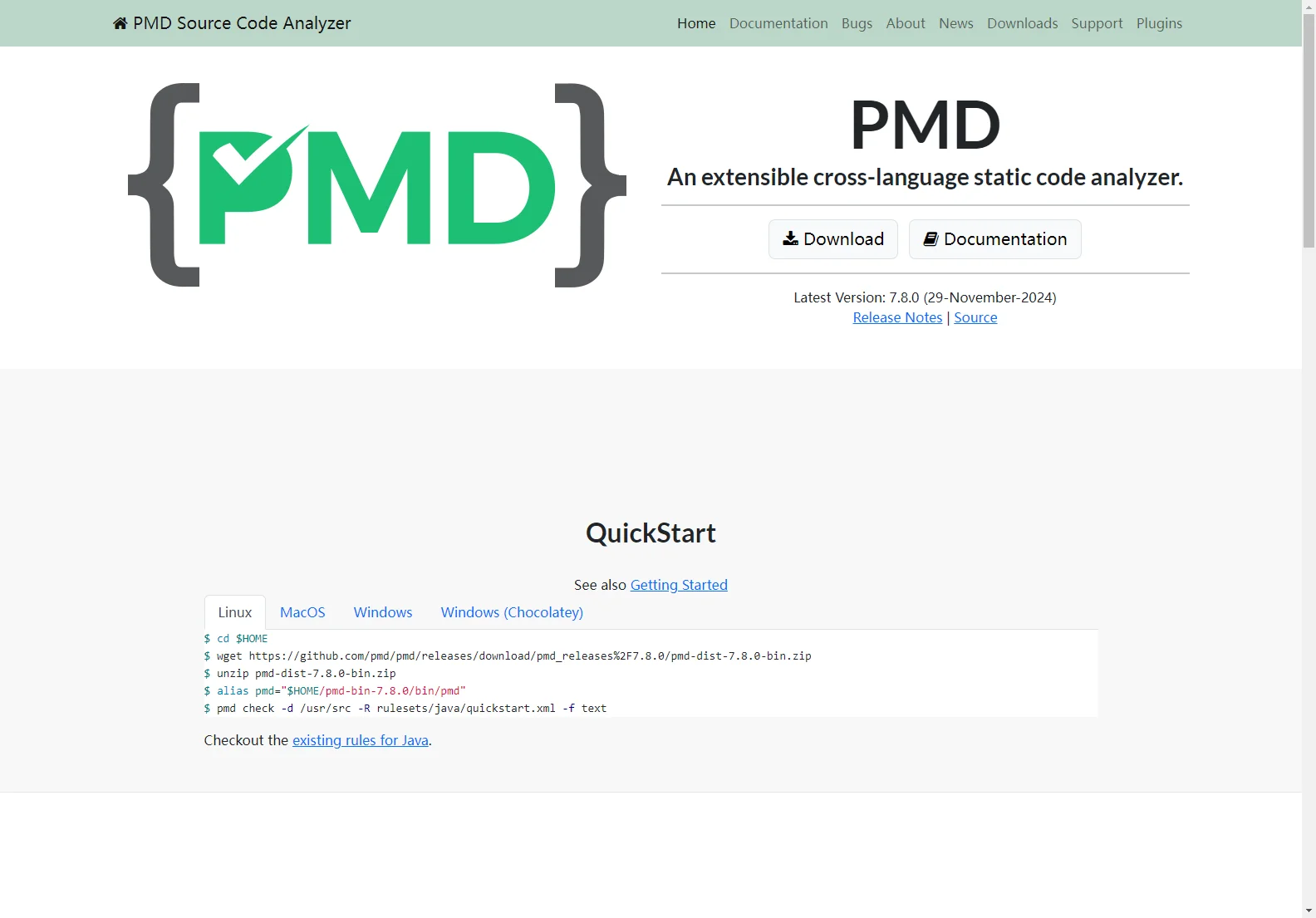PMD: An Extensible Static Code Analyzer
PMD is an open-source, extensible static code analyzer that helps developers find common programming flaws and improve code quality. It supports a wide range of programming languages, boasts a large library of built-in rules, and allows for custom rule creation. This makes it a versatile tool for various development projects.
Key Features
- Multi-language Support: PMD analyzes code written in Java, JavaScript, Apex, Visualforce, Kotlin, Swift, Modelica, PLSQL, Apache Velocity, JSP, WSDL, Maven POM, HTML, XML, and XSL. While Scala support exists, dedicated Scala rules are currently unavailable.
- Extensive Rule Set: Over 400 built-in rules detect issues such as unused variables, empty catch blocks, unnecessary object creation, and more. These rules are categorized for easier navigation and application.
- Custom Rule Creation: Extend PMD's functionality by creating custom rules tailored to your specific coding standards and project requirements. Rules can be written in Java or using XPath queries.
- Copy-Paste Detection (CPD): PMD includes CPD, a powerful tool for identifying duplicated code across various programming languages. This helps maintain code consistency and reduces redundancy.
- Integration with IDEs: Integrate PMD seamlessly into your preferred IDE (Eclipse, NetBeans, IntelliJ IDEA) for convenient code analysis during development.
- Command-Line Interface: PMD offers a command-line interface for easy integration into build processes and automated testing pipelines.
How PMD Works
PMD uses JavaCC and ANTLR to parse source code into abstract syntax trees (ASTs). It then applies its rules to these ASTs to identify potential code violations. The results are presented in a clear and concise format, making it easy to pinpoint and address the identified issues.
Use Cases
- Improving Code Quality: PMD helps developers write cleaner, more maintainable, and more efficient code by highlighting potential problems early in the development process.
- Enforcing Coding Standards: PMD can be configured to enforce specific coding standards and best practices, ensuring consistency across a project.
- Identifying Security Vulnerabilities: Certain PMD rules can help detect potential security vulnerabilities in code, contributing to a more secure application.
- Reducing Technical Debt: By identifying and addressing code smells and other issues, PMD helps reduce technical debt and improve the overall health of a project.
Getting Started
PMD is available for various operating systems (Linux, macOS, Windows) and can be installed using various methods, including command-line tools and package managers like Chocolatey.
Conclusion
PMD is a valuable tool for any developer looking to improve code quality, enforce coding standards, and identify potential problems early in the development lifecycle. Its extensive language support, customizable rules, and integration with various IDEs make it a highly versatile and effective static code analysis solution.

